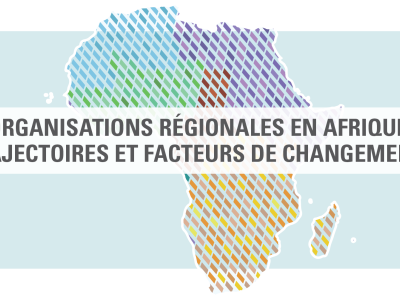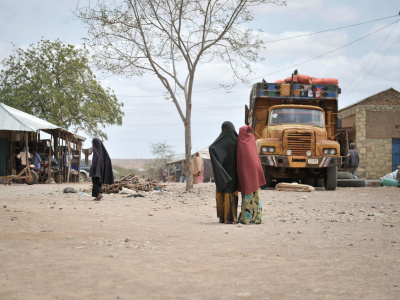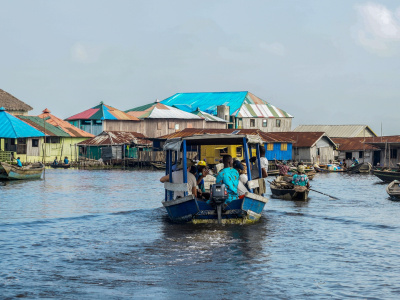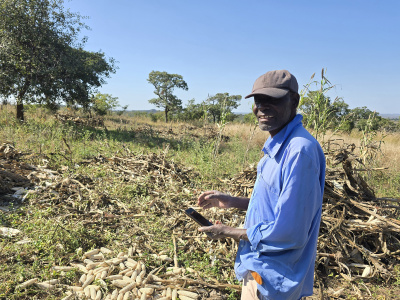
Will the re-election of Obama just bring more of the same to Africa?
By Faten Aggad When I visited Tanzania in early 2009, small street shops were selling fabric with the face of Obama and the famous ‘Yes we Can’ election slogan printed on them. Few months later, I bought a box of Obama gum from a store in Burundi. The box of gum was a special edition produced by a Kenyan candy factory to celebrate the election of Obama into the White House.
Africa was clearly proud of its (half) son and expectations that his election would yield a new era in US-Africa relations were very high. But the Obama-fever was short-lived as Africans came to grips with reality: the election of Obama did not bring much to the continent. The absence of Mr. Obama on all-issues related to Africa was strongly noticed. Besides his famous visits to Ghana and Egypt where he delivered strongly-worded speeches on the importance of democracy he was not much seen on the continent. However, his Secretary of State, Hillary Clinton, paid several visits to Africa, the latest being two weeks ago to Algeria to discuss the Malian conflict. But if one puts aside the numbers, which are nonetheless important diplomatic signals, and looks at the substance of the cooperation then there is little ‘innovation’ in the US’s Africa policy for which the Obama administration could be proud of. First, the image of the US as a security-obsessed international player did not change much. Despite the constructive contribution of the Obama administration in finding an international resolution to the conflict between North and South Sudan and the subsequent independence of South Sudan, the US’s key peace and security interest in Africa continues to be counter-terrorism. In Africa, it was initially hoped that the Obama administration would mean closer cooperation with African own-led peace and security initiatives on the continent. But from Somalia to Libya and now to Mali, the US interest in Africa under the Obama administration is not so different from the Bush administration. Economically, the former position of the US as Africa’s single largest trading partner was lost to China in 2009 and the Obama administration has since then not been able to reverse the trend. Although the US continues to be the largest importer of African goods, thanks to the African Growth and Opportunity Act (AGOA), which was launched by Bill Clinton, the US is loosing ground on exports and investments. In 2011, the Millennium Challenge Corporation (MCC) aimed at tackling this gap by pumping $5.5 billion as investments in economic development in Africa in mainly 13 African economies (Benin, Burkina Faso, Cape Verde, Ghana, Lesotho, Madagascar, Malawi, Mali, Mozambique, Morocco, Namibia, Senegal and Tanzania). The MCC investments are coupled with strong governance conditionality aimed at providing ‘incentives’ for countries to reform. However, even this initiative is not new; it is a continuation of an initiative launched by the previous administration. The new US Strategy for Africa, which was unveiled in June this year, also lacked imagination. Based on four pillars (strengthening democratic institutions; economic growth, trade and investment; peace and security; and development) it largely rehashes what already exists. The only new initiative by the Obama administration cited in the document was the Partnership for Growth, which focus is on economic growth. Unveiled at the end of 2011, and covering Ghana and Tanzania, this Partnership is however too fresh to assess. In his first term, Obama did not have Africa as a priority. And given the current international context it is difficult to imagine that the US would shift its focus from the Middle East and the Persian Gulf and China to focus especially on Sub-Saharan Africa. The truth however is that the US is not the only traditional international partner that is struggling to reposition itself vis-à-vis the changes and demands emanating from Africa. Furthermore, a focus on domestic political priorities at a time of crisis, and rightly so, is probably what owed Mr. Obama his reelection. But as he starts his second and last term in office, now is his chance to leave his stamp on US-Africa relations. But will he dare? Faten Aggad is Programme Manager of ECDPM’s Africa’s Change Dynamics Programme. This blog post features the author's personal views and does not represent the view of ECDPM.



